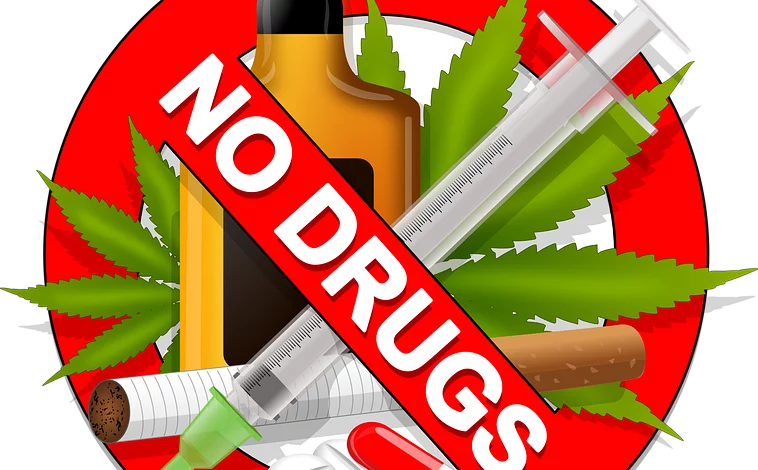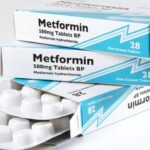10 Benefits Of A Drug Free Lifestyle

Living a drug-free lifestyle means choosing to avoid the use of any substances that can potentially harm your physical, emotional, or mental health. This includes illegal drugs, prescription drugs that are not prescribed to you, and even some legal substances like alcohol and tobacco.
The idea of living a drug-free lifestyle has been around for centuries, as many cultures have recognized the negative effects of substance abuse on physical and mental health. The use of mind-altering substances for recreational purposes has been documented as far back as ancient civilizations like the Greeks, Romans, and Egyptians.
In the 20th century, the use of drugs like cocaine, heroin, and marijuana became more widespread and led to increased concerns about their effects on individuals and society as a whole. This led to the development of drug-free campaigns and the establishment of organizations like Narcotics Anonymous and Alcoholics Anonymous.
In the 1980s, the “Just Say No” campaign was launched in the United States to discourage young people from experimenting with drugs. This campaign was led by First Lady Nancy Reagan and was a response to the increasing prevalence of drug use among young people.
Today, the drug-free lifestyle movement continues to promote healthy living and the avoidance of harmful substances. This includes not only illegal drugs but also prescription drugs that can be abused and even legal substances like alcohol and tobacco. Many people choose to live a drug-free lifestyle as a way to prioritize their health and well-being.
How to Live a Drug-free Lifestyle
Living a drug-free lifestyle can be challenging, but it is a worthwhile goal that can improve your overall health and well-being. Here are some tips for living a drug-free lifestyle:
1. Avoid peer pressure: One of the most common reasons people try drugs is because of peer pressure. To avoid this, surround yourself with friends and acquaintances who share your values and goals.
2. Seek support: If you are struggling with drug addiction or have a history of drug use, seek help from a professional or support group. There are many resources available, including counseling services, rehab programs, and peer support groups.
3. Stay active: Engaging in physical activity can help reduce stress and improve your mental and physical health. Find an exercise routine that you enjoy and make it a part of your daily routine.
4. Eat a healthy diet: Eating a balanced and nutritious diet can help improve your overall health and provide you with the energy you need to stay focused and productive.
5. Find healthy coping mechanisms: Instead of turning to drugs or alcohol to cope with stress or difficult emotions, find healthy ways to manage your emotions. This can include things like meditation, yoga, or talking to a trusted friend or family member.
6. Educate yourself: Learn about the risks and consequences of drug use, as well as the benefits of living a drug-free lifestyle. This knowledge can help motivate you to stay on track and make informed decisions.
10 Benefits Of Living A Drug Free Lifestyle
1. Improved physical health: Drug abuse can take a significant toll on physical health, leading to a wide range of health problems such as cardiovascular disease, liver disease, and respiratory problems. Living a drug-free lifestyle can help reduce the risk of these and other chronic health conditions and promote overall physical health.
2. Improved mental health: Substance abuse can lead to or exacerbate mental health problems such as depression, anxiety, and psychosis. Living a drug-free lifestyle can improve your mental health and reduce the risk of developing these conditions.
3. Better relationships: Drug use can strain relationships with family and friends, leading to feelings of isolation and loneliness. Living a drug-free lifestyle can help you build stronger, healthier relationships with those around you.
4. Increased productivity: Substance abuse can impact your ability to work or study, leading to decreased productivity and poor performance. Living a drug-free lifestyle can help you stay focused and productive, leading to greater success in your personal and professional life.
5. Better financial stability: Drug use can be expensive, leading to financial instability and debt. Living a drug-free lifestyle can help you save money and improve your financial situation.
6. Improved self-esteem: Substance abuse can lead to feelings of shame and guilt, damaging self-esteem and confidence. Living a drug-free lifestyle can help you build self-esteem and confidence, leading to a more positive self-image.
7. Better decision-making skills: Substance abuse can impair decision-making skills, leading to poor judgment and risky behavior. Living a drug-free lifestyle can help you make better decisions in all aspects of your life.
8. Improved quality of life: Living a drug-free lifestyle can improve your overall quality of life by reducing the risk of health problems, improving mental health and relationships, and promoting productivity and financial stability.
9. Better role model: By living a drug-free lifestyle, you can set a positive example for others, particularly young people, and inspire them to live healthy and productive lives.
10. More fulfilling life: Living a drug-free lifestyle can lead to a more fulfilling and meaningful life by allowing you to focus on your goals and relationships, pursue activities that bring you joy and fulfillment, and contribute positively to your community.
What is the importance of a drug-free society?
A drug-free society is important for several reasons, including:
1. Public health: Substance abuse can lead to a range of physical and mental health problems, which can have a significant impact on public health. A drug-free society can help reduce the incidence of these health problems and promote overall health and well-being.
2. Public safety: Substance abuse can lead to dangerous and criminal behavior, such as impaired driving and violent crime. A drug-free society can help reduce the incidence of these crimes and improve public safety.
3. Economic stability: Substance abuse can be costly, both in terms of healthcare costs and lost productivity. A drug-free society can help reduce these costs and promote economic stability.
4. Social cohesion: Substance abuse can damage relationships with family and friends and lead to social isolation. A drug-free society can help promote stronger, healthier relationships and foster social cohesion.
5. Educational attainment: Substance abuse can impact academic performance and reduce educational attainment. A drug-free society can help improve academic performance and promote educational attainment.
6. National security: Substance abuse can be linked to international drug trafficking and other criminal activity. A drug-free society can help improve national security by reducing the demand for illegal drugs.
Overall, a drug-free society can lead to better public health, safety, economic stability, social cohesion, educational attainment, and national security. It can promote a healthier, safer, and more prosperous society for all.





